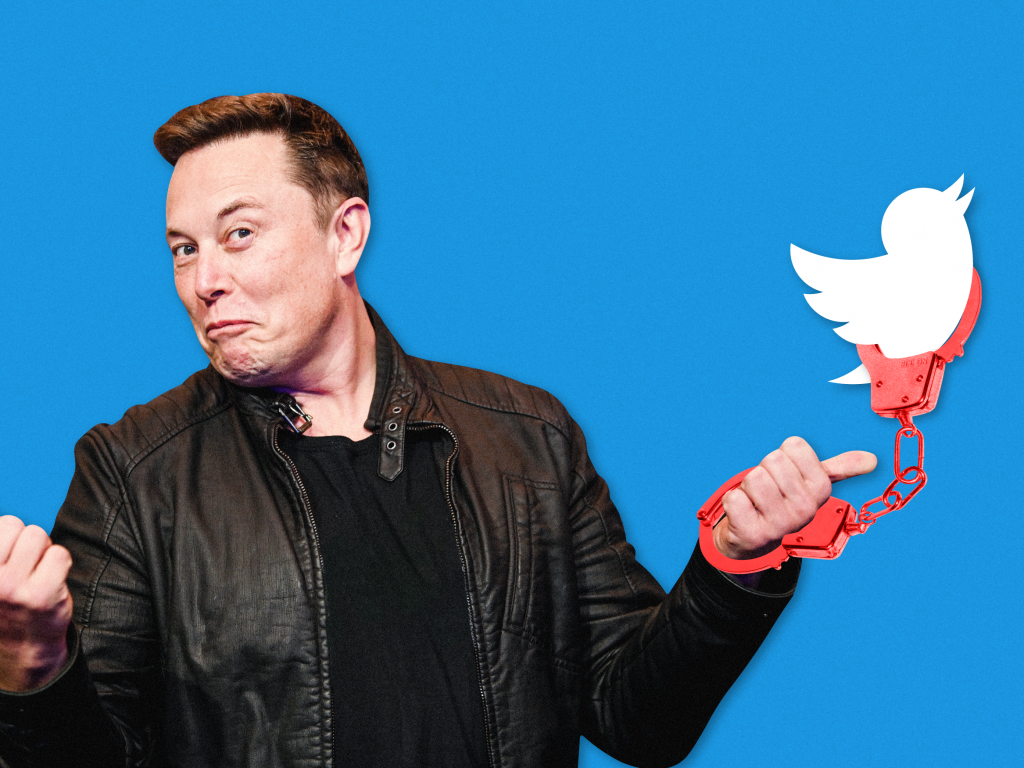- Elon Musk reportedly told Tesla and SpaceX employees to return to the office or resign on Tuesday.
- Twitter was one of the first companies to allow employees to work remotely indefinitely.
- A spokesperson told Fast Company Twitter has no plans to change its policy amid Musk's takeover.
Twitter was one of the first major tech companies to declare a work-from-home "forever" policy in 2020, but Elon Musk's stance on remote work could cause yet another shake up at the company.
On Tuesday, the billionaire — who is in the process of buying Twitter — reportedly issued an ultimatum to his employees at Tesla and SpaceX via email: return to the office or resign. The leaked emails were verified by The Washington Post and The New York Times.
The billionaire took a dig at companies that have been more lenient with remote work.
"There are of course companies that don't require this, but when was the last time they shipped a great new product?" Musk reportedly said in a companywide email. "It's been a while."
Musk did not respond to a request for comment on whether the policy would eventually apply to Twitter. A Twitter spokesperson did not immediately respond to a request for comment from Insider, but told Fast Company that it has no plans to change its policy.
"Our priority is for employees to work wherever they feel most productive and creative," the spokesperson said.
Twitter might not have a choice if Musk completes his purchase of the social-media company.
Musk's stance on remote work runs counter to that of Twitter founder Jack Dorsey, who is friends with the Tesla CEO. The former Twitter CEO has been known for his bohemian lifestyle. Dorsey has said he found inspiration for work in Africa and Myanmar, as well as the company's headquarters in San Francisco.
When Twitter initially announced that it would allow employees to work-from-home indefinitely, Dorsey sent a companywide email with the subject line "#lovewhereyouwork."
"We're serious about a distributed workforce, and we've proved we can make it work," he wrote.
Even before the COVID-19 outbreak, Dorsey had voiced plans to encourage a "distributed workforce."
"I don't fear any slowness as we work to distribute our workforce now, and I do think we have to build a company that's not entirely dependent on San Francisco," Dorsey said during an earnings call in February. "As we look forward, we're reaching a talent pool that expects a lot more remote work … We should be building our company around that. I haven't made any plans just yet for this year, but I do expect that I will travel."
Twitter is one of several tech companies who are seeking to diversify their talent through remote-work policies. In May, Airbnb CEO Brian Chesky said the office was "from a pre-digital age" after the company announced that employees could work from home forever. Other companies like Apple and Microsoft have been forced to modify return to work policies amid pushback from employees.
Remote working opportunities have become a key benefit amid the great resignation. Last year, a Harris Poll found that 62% of Americans said they would take lower pay in exchange for the ability to work-from-home forever. Insider's Isobel Asher Hamilton reported that three economists said remote work had little impact on workers' ability to get stuff done and may even increase productivity.
Musk's opinion on remote work could become yet another hurdle in his relationship with Twitter employees. In a regulatory filing last month, Twitter warned that the purchase could affect the company's ability to attract and retain employees.
On Wednesday, Bloomberg reported that news of Musk's $44 billion purchase had sparked negative feedback from many workers — with some questioning how Musk might change the company's culture. Last month, Musk said "work ethic expectations would be extreme" for Twitter employees.

